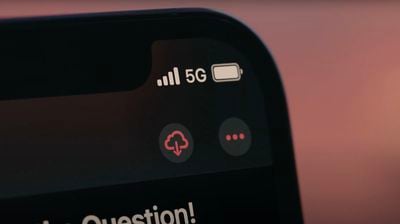The iPhone 14 could offer better battery life and feature Wi-Fi 6E connectivity thanks to a new 5G chip, supply chain sources claim.

Taiwan's Economic Daily News reports that TSMC has obtained all of Apple's orders for its 5G radio frequency (RF) chips for the iPhone 14 lineup, taking over from Samsung. The chips, likely related to Apple's selection of Qualcomm's Snapdragon X65 modem, are purported to be produced using TSMC's 6nm process, which the supplier announced last year. TSMC said that the 6nm process for 5G RF chips can provide a physically smaller chip with lower power consumption.
The 6nm RF process enables the chip to use less power on both sub-6GHz and mmWave 5G bands while still providing a high level of performance. As well as being more efficient, shrinking the large RF transceiver component inside the iPhone is expected to free up space. Each additional square millimeter of space that is reclaimed is purported to create more room for a larger battery. Together, the improved efficiency and miniaturization of the RF chip are said to result in better overall battery life.
The RF transceiver chip is also reported to feature support for Wi-Fi 6E, in line with previous rumors claiming that the iPhone 14 lineup will support the upgraded connectivity. Wi-Fi 6E offers the features and capabilities of Wi-Fi 6, including higher performance, lower latency, and faster data rates, extended into the 6GHz band. The additional spectrum provides more airspace beyond existing 2.4GHz and 5GHz Wi-Fi, resulting in increased bandwidth and less interference.
In 2019, Apple and Qualcomm settled a legal battle and reached a multiyear chipset supply agreement, paving the way for Apple to use Qualcomm's 5G modems. A court document from the settlement revealed that Apple was planning to use the Snapdragon X60 modem, manufactured by Samsung, in the iPhone 13 lineup, followed by the Snapdragon X65 modem in the 2022 iPhone lineup.
Starting in 2023, Apple is expected to move away from Qualcomm's chips and implement its own custom-designed 5G modem in the iPhone.
The X65 is the world's first 10 Gigabit 5G modem and antenna system for smartphones, enabling theoretical data speeds of up to 10 gigabits per second. While real-world download speeds will likely be much slower than that, the X65 has other benefits such as improved power efficiency, enhanced coverage for both mmWave and sub-6 GHz bands, and support for all global commercialized mmWave frequencies.
Apple's pivot away from Samsung toward TSMC to manufacture its RF chips for 2022's iPhone lineup appear to be part of the final solidification of the iPhone 14's supply chain ahead of the start of mass production. Simultaneously, Foxconn has begun trial production of the iPhone 14 Pro.























